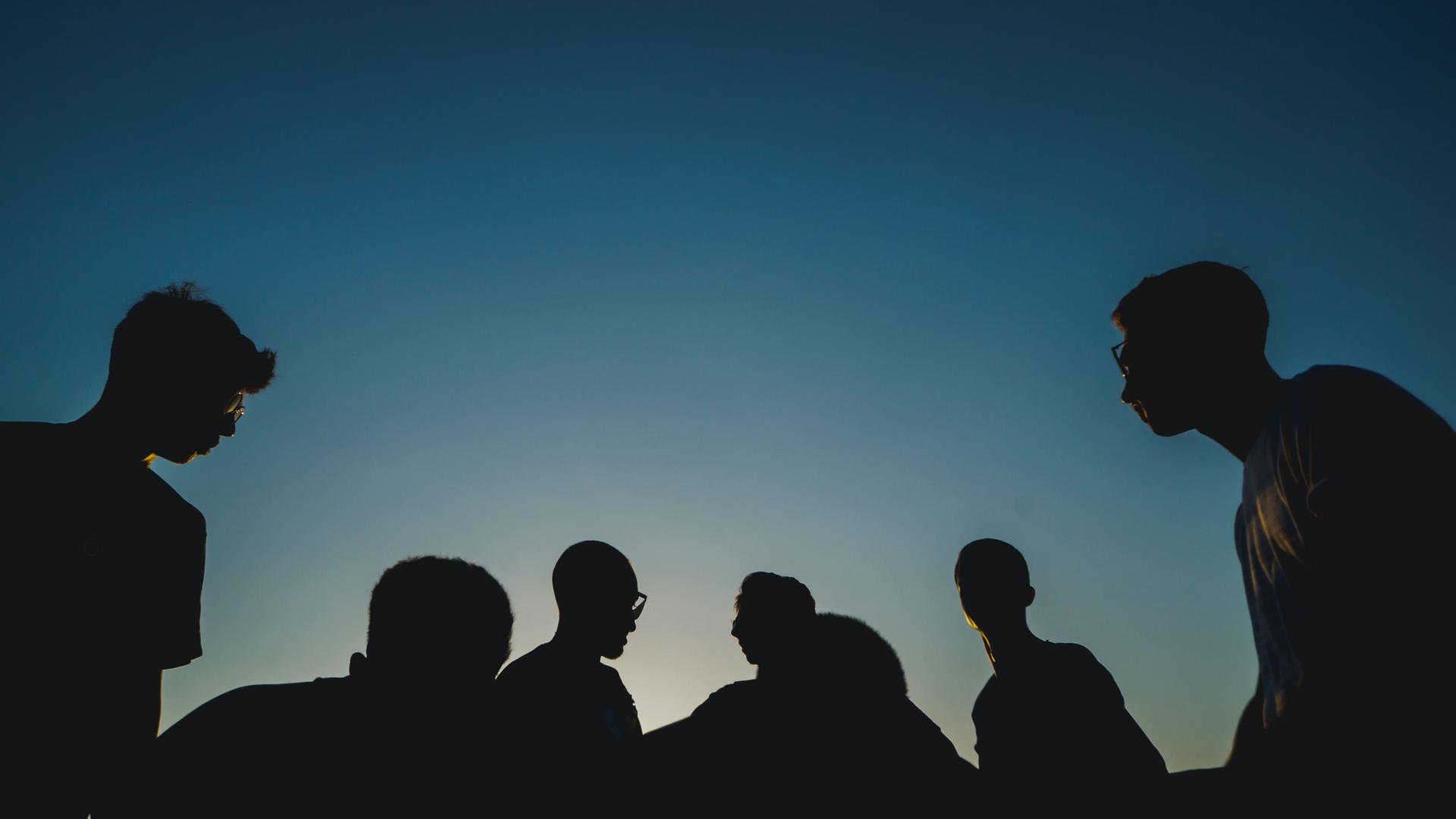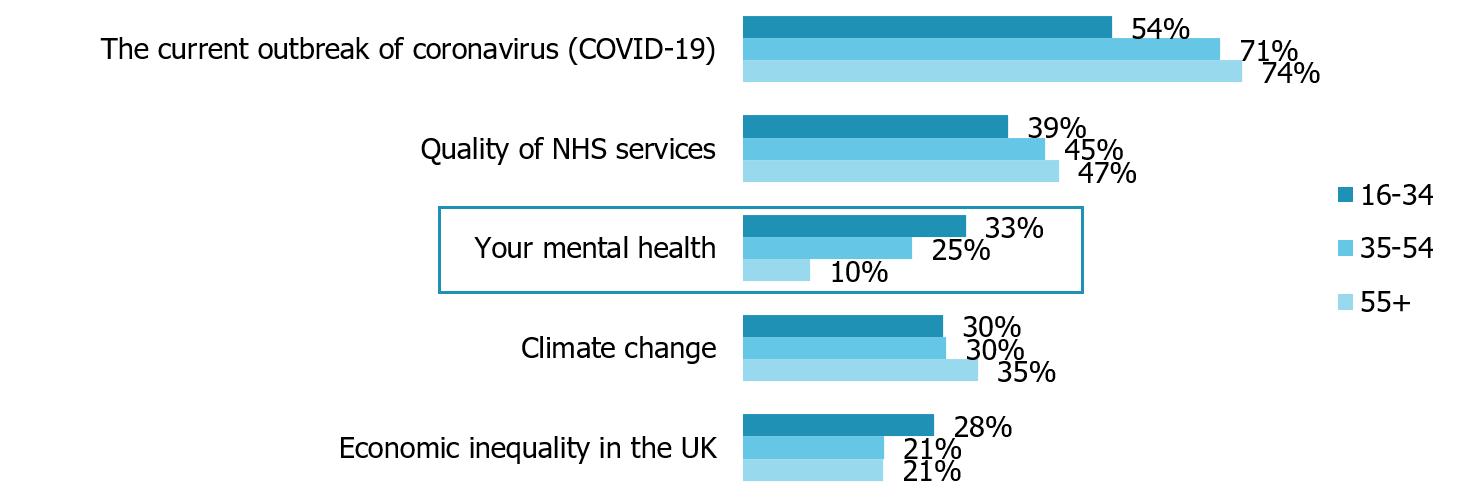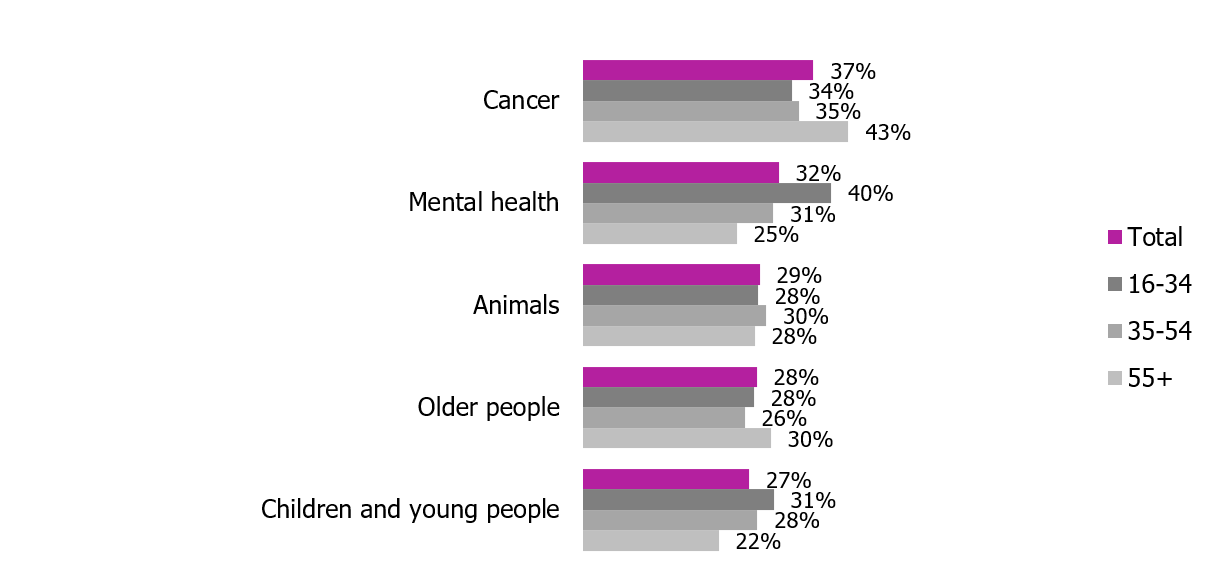The current Covid-19 pandemic – and its socioeconomic consequences – has created unprecedented challenges for each of us, and mounting evidence shows our mental health has also been affected; an impact that is stated by Director-General of the World Health Organization (WHO) as “already extremely concerning”.
According to the Office for National Statistics (ONS), and their Opinions and Lifestyle Survey (from 5th June), the most common issue affecting well-being continues to be feeling worried about the future (63%), followed by feeling stressed or anxious, and feeling bored (49%).
Looking at our nfpSynergy recent Covid-19 & Charities poll (Figure 1), at the end of June more than half of the public were still very anxious about the outbreak (at 56%) – a figure that has gradually gone down since, but that still remains high. A third of the public was also worried about their job and livelihood and about how they would fill their time.
Figure 1: People’s feelings regarding the pandemic
“To what extent do you agree or disagree with the following statements about the coronavirus (COVID-19) outbreak?” Strongly agree + Agree
Source: nfpSynergy poll, June 20, nfpSynergy | Base: 1,000 adults 16+ per wave, Britain
Different groups have suffered from the pandemic and its socioeconomic outcomes in different ways. In this blog, we will focus on its impact on young people, and their mental health in particular. By now, we all know that the virus seems to cause more severe symptoms in older individuals; so one might think that younger generations are less worried about it, or about their physical health. And on the surface, that is true. But when one looks at the effects of the measures necessary to contain the virus’ spread, another layer is revealed. As researchers from the Lancet Psychiatry journal put it:
Although COVID-19 presents the greatest physical health risk to older people, the mental health of the young might be disproportionately affected by transmission mitigation strategies and the pandemic response of governments.
First, there is the direct impact of containment measures: social isolation, fewer activities, and so on. Then there’s the effect of those measures on employment, salaries, and job prospects. Arguably, both elements affect young people more.
Young people, mental health and the Covid-19 pandemic: a look at the data
Our Charity Awareness Monitor (CAM) shows that young people are significantly more likely to say that they have experienced a mental health condition than older generations: in July this year, over one in four people between 16-34 years old stated that they have personally experienced some sort of mental health condition, compared to 12% among the 55+ age group.
As Figure 2 (below) shows, mental health scores high in the worry scale for young people even in today’s world, whereas older generation are much more worried about the direct effects of the outbreak:
Figure 2: Top 5 issues of most concern, ranked by 16-34 age group
“Thinking about the following issues, please select up to five that you are most concerned about”
Source: nfpSynergy poll, June 20, nfpSynergy | Base: 1,000 adults 16+ per wave, Britain
The press has made much of the supposed blasé attitude of young people towards the virus, on account of their being mostly spared from its worst effects. But beyond those headlines, we can now see that younger people may be simply looking ahead past the immediate effects of the crisis – such as the impact on tomorrow’s jobs and their future livelihood. As seen in our data, they are significantly more worried about that than other generations (48% among the 16-34 vs. 33% among total sample), as well as about education and disposable income[1]. And this is taking its toll on their mental health, even today.
How can we support the mental wellbeing of the youth?
According to the Centre for Mental Health, “it is estimated that at least half a million people in the UK will experience poor mental health as a result of Covid-19; a figure that could go much higher if there are further waves of the virus to come.”
Mental health services were already overstretched before the pandemic; and while not every single person affected will need specific care or treatment, the number of people requiring mental health services will still undoubtedly increase, meaning that the government, the NHS and charities need to keep adapting their services and resources, to make sure that needs will be met.
Charities working in the sector will no doubt keep assisting those in most need first, but, if the youth’s worries on the economic fallout from the outbreak prove to be founded in the coming months, they should expect a surge in demand for their services from younger generations.
Research conducted by the charity YoungMinds in June 20 revealed that 80% of the young people they surveyed (all presenting a history of mental health needs at the time) said that the pandemic had made their mental health worse, and almost a third (31%) of young people who were receiving some form of mental health support immediately before the pandemic were no longer accessing it.
However, more positive news is that young people are also more likely to give back: younger people are significantly more likely to support the mental health sector as opposed to the rest of the population, as shown by Figure 3 below:
Figure 3: Top 5 sectors of consideration to support, by age groups
“Would you consider supporting a charity working in any of the following sectors over the next three months?”
Source: Charity Awareness Monitor, May 20, nfpSynergy | Base: 1,000 adults 16+, Britain
No one knows how long the pandemic will last and will keep affecting our lives – and our mental health. But what we know is that it’s likely that younger generations will be disproportionately hit by long-term consequences. Charities working in the sector need to adapt and work along with other mental health services, the NHS, and be supported by the Government to respond to the call for help in the coming months.
https://www.independent.co.uk/news/health/coronavirus-mental-health-nhs-uk-patients-demand-a9666411.html
https://www.health.org.uk/news-and-comment/blogs/emerging-evidence-on-covid-19s-impact-on-mental-health-and-health
https://www.thelancet.com/journals/lanpsy/article/PIIS2215-0366(20)30308-4/fulltex
https://www.who.int/news-room/detail/14-05-2020-substantial-investment-needed-to-avert-mental-health-crisis
[1] the Youth and COVID-19 survey by the OECD
Try being a young person with
Try being a young person with autism or other support needs - they already struggled to access any recognition or support for their mental health, in overstretched services, before the pandemic. Now their world has been turned upside down, their support services have been suspended, and no-one can tell them how or when this will end.
Hi LM, thank you for your
Hi LM, thank you for your comment. Yes, this is a real issue for many people as well; we haven’t focused on it in this blog, but it is a major concern for many that mental health charities or services should definitely consider.




